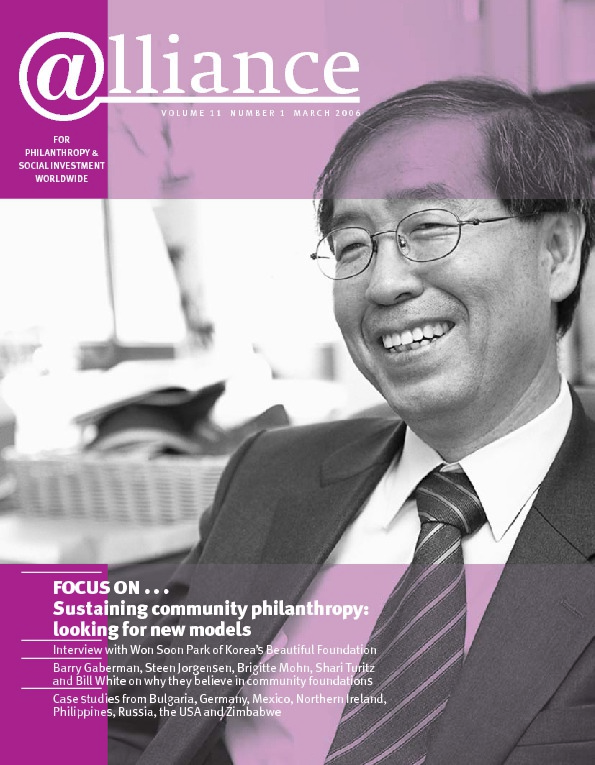Flooding in the province of Chihuahua in 1991 and the subsequent need for funds for reconstruction led to an arrangement between local employers and the state government whereby employers paid an extra 10 per cent on the payroll tax into a special fund for social development.
Over the next few years, this fund evolved into the Fundación del Empresariado Chihuahuense (FECHAC), which was launched in 1996 (see Alliance, June 1999). Meanwhile, the original arrangement between state and private sector was renewed, at the request of business leaders, in 1994 for a further six years. It has been renewed twice since and is due for further renewal this year.
FECHAC’s main areas of endeavour are education, health and well-being, sustainability, and development of social responsibility. Over the last ten years, it has invested over US$45 million in some 1,500 activities and programmes throughout the state of Chihuahua, such as building, rebuilding and refurbishing healthcare institutions and schools, providing care for the elderly, and training for microenterprise owners. Its annual income is currently around $8 million. It has an endowment of some $4.5 million, which it is working to increase.
An important change in emphasis happened in 1998 when the organization decided to shift its focus from welfare to the more complex question of well-being. For FECHAC, this is a question of self-realization. It interprets it as direct action in the community through seminars, lectures and other programmes that aim to encourage attitude changes such as adopting the notion of social responsibility. FECHAC convenes all stakeholders to find solutions to intractable problems, in two notable cases for indigenous people and older people. As a result, two ‘Triple I’ (Interinstitutional, Intersectoral and Integral) programmes were created to promote dialogue between institutions that are usually in conflict. As Thelma Manzano, manager of these programmes, explains: ‘FECHAC’s attribute is its great summoning capacity. Partly because of its leader but also because of the confidence and recognition FECHAC as an organization has achieved.’
One of the striking things about FECHAC is the initiative taken by the private sector in launching and continuing to support the fund. For this to happen, FECHAC has to demonstrate that it is providing value for money. The periodic renewal of the payroll tax arrangement, which involves the state’s 54 employer organizations petitioning the government, means they have the opportunity to assess whether their social investments are being effectively utilized and to stop making them if they are not.
This arrangement would seem to provide a model that could be adapted and applied to other areas of the country. Has this happened? At the moment, only to a limited extent. Just a month ago, in December 2005, Oaxaca Community Foundation heard that, after approximately two years of intense work, they had obtained a decree like the one operating in Chihuahua. In Sonora, Fundación del Empresariado Sonorense (FESAC) was created with the goal of coordinating efforts between the private sector and government and securing a similar decree to obtain funds, but this has so far not come to fruition. The Fundación del Empresariado de México (FUNDEMEX) in Mexico City wants to operate nationally. Backed by several national business organizations, it is currently in its early stages and is seeking voluntary contributions through the IRS website.
Adrián Aguirre is CEO of FECHAC. He can be contacted at director@fundacion.org.mx
For more information, visit http://www.fechac.org.mx





Comments (0)